
DAY ONE: MAINSTAGE #SalonSmart19
The industry’s most inspirational, relatable and enjoyable business-networking event returned to London for the thirteenth year running yesterday, as Salon Smart 2019 got underway in the capital’s Park Plaza London Riverbank hotel, on the banks of the River Thames.
Creative HEAD publisher, Catherine Handcock, welcomed everyone with an acknowledgement that now is a time of enormous upheaval for the British hairdressing industry – and for salon owners in particular. Apprenticeship numbers dropping, funding rates forever changing, above-inflation rises in the National Minimum Wage, compulsory pension contributions, itemised payslips and digital tax records if you’re above the VAT threshold… finding new talent is harder than ever, and the cost of employing a loyal team has soared. “And I wonder if this is why, for the first time ever, more than half of our industry’s workforce operates within the self-employed gig economy – whether they actually want to or not?” she mused.
Introducing the theme – Make Time to Change – Catherine outlined the mission of this year’s event: to help salon owners make best use of their time, when to charge for it, how to save it and ways to free up more of it, with real life stories from other salon owners about how they manage their time – and how they make sure their clients enjoy and value the time they spend with them.
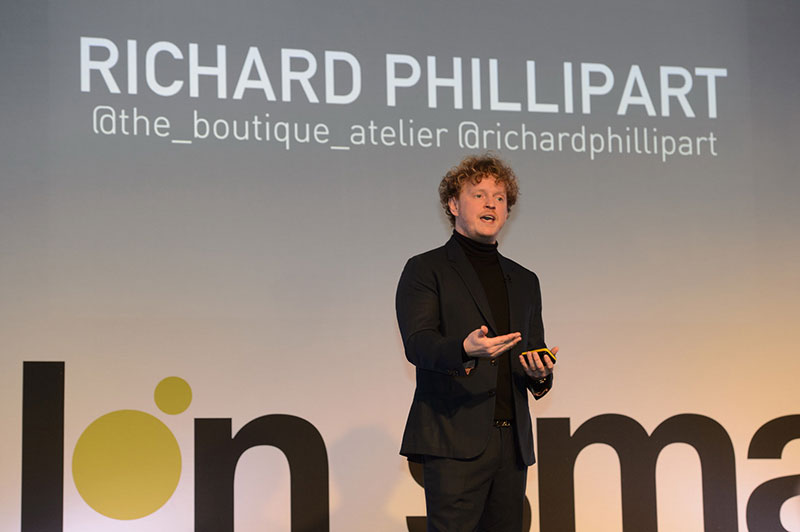
Richard Phillipart
In a day packed full of spellbinding hair presentations and supremely engaging talks from a wide range of industry speakers, Richard Phillipart kicked off the afternoon’s proceedings by sharing the story of his rise from Saturday boy to salon owner in less than ten years.
Launching his salon at the age of just 22, Richard’s target was to open a salon that he would want to work in. “It had to be about the hairdressing craft over profits,” he explained. By his own admission, Richard is target driven, and takes pride in maximising the potential of the space that he has. To ensure his clients can get an appointment at a time that suits them, he decided to keep the salon open until 8pm five days a week, and opens Sundays.
“We got the team on board by promising they would work one weekend on, one weekend off – that means they go from having 5 full weekends off a year to having 25 full weekends off a year,” Richard said. Getting the right assistants has also been important to Richard – “we go into schools throughout the year so we are at the forefront of their mind, and not just a last resort”. And to tackle the high dropout rates amongst young salon workers, the Boutique Atelier offers a career break programme of four to six weeks, where one staff member at a time can take time out to travel and pursue other goals. The result? “They can take a step back and try something new for a while but are guaranteed their job back – this builds staff loyalty.”
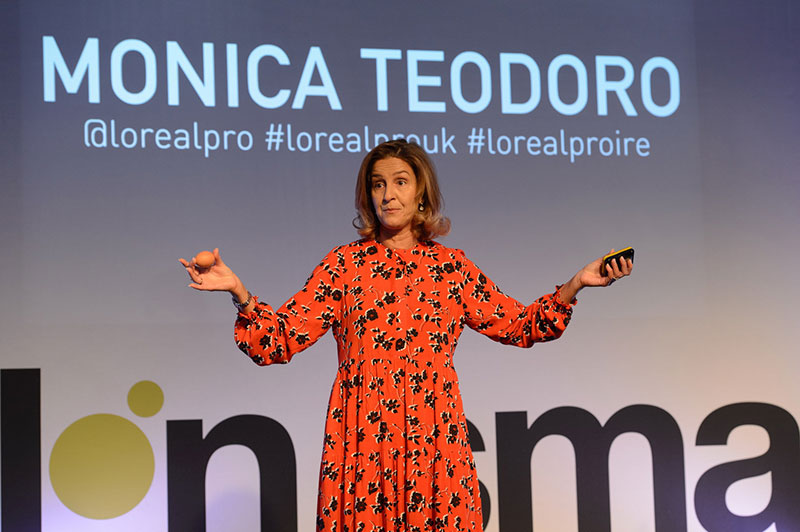
Second on the bill was L’Oréal Professionnel UK and Ireland’s general manager Monica Teodoro, and anyone who has experienced a talk by Monica knows to expect the unexpected – but being told to search for an egg under our seats was pretty left field, even for Monica. When the egg had been retrieved, she proceeded to declare the egg… a disruptor. Because one egg had managed, in just 24hrs, to become a social media sensation. Someone had the simple idea of usurping Kylie Jenner’s Instagram record, and chose something so ridiculous and innocuous that it spread like wildfire. In 24hrs it sat at 18.4 million likes on Instagram, smashing Jenner’s record. Not satisfied, they cracked it – and effectively channelled that huge following to a discussion about mental health.
Having proved that creating a point of difference – something simple yet effective – doesn’t have to cost the earth. Monica proceeded to the main focus of her slot: how the combination of consumer behaviour, working patterns and technology is disrupting the salon model. When 95 per cent are digitally savvy (2017), up from 57 per cent in 2013, it’s necessary to “speak beyond the noise of the internet.”
“People aren’t coming to you just for a cut anymore. They want to be surprised, delighted, entertained,” she insists. “They’ve checked you out before they’ve even set foot in your salon and they’ll tell people about you and what they thought.” With the salon as the last bastion of the high street and community, in a high street which has already changed. To survive, salons need to make sure they’re making the needs of consumers. Whether that’s flexible working hours for the cash rich/time poor, or even re-shaping the idea that there needs to be a reason or event to come in and have your hair done. “It’s all about connecting your passion to someone else’s needs,” she explained. With more and more clients seeking an experience rather than accumulating more ‘things’, she finished by challenging the assembled salon owners, managers and hairdressers: “What’s your egg?”

Sarah Black has enjoyed great success as an award-winning colour expert at Linton & Mac in Aberdeen – and the key to her achievements is constant reflection and reinvention. “Once I saw social media wasn’t just for selfies and food, I decided I was going to use it as a way to start afresh. I took responsibility for my own shit, and I used it to develop a new clientele,” she said. A client shared piece of advice that stuck with Sarah, who walked away from her old salon and the world of session, was that “If you don’t have a team that support your success, then it’s not for you. It’s okay to walk away from things. You can grow something by taking something away”.
Collaboration is an important part of keeping her work fresh, and Sarah has enjoyed working with Ky Wilson once a month in London – but it’s possible to share your creativity closer to home. “Instagram introduced me to Ky, but even if you don’t want to reach out to someone, collaborate within your salon,” she suggests. “In 2019 I don’t plan on wasting any time. I’m not willing to give up what I love to go on a night out. I need to stay passionate about what I do!”
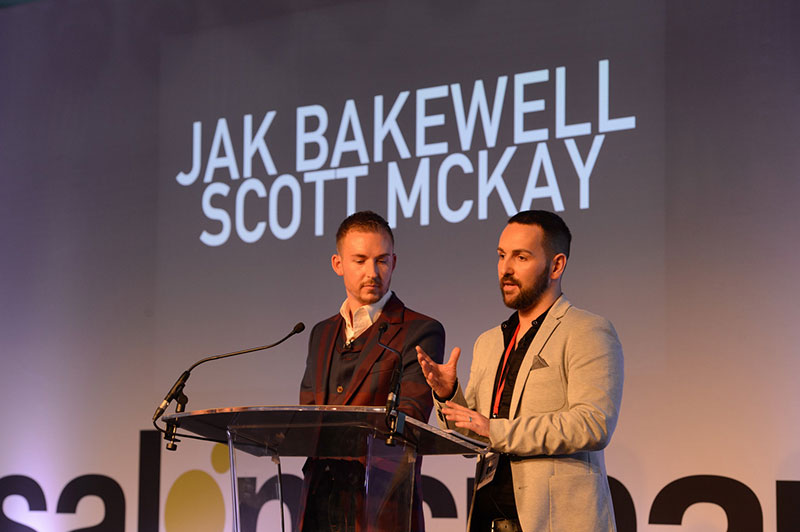
In the small market town of Louth, you’ll find Re-Invention House (founder Jak Bakewell is a big Madonna fan), where clients need to be invited to be seen by Jak and co-style director, Scott McKay, each receiving a bespoke price list and instructions on how to find the location. This format lives up to its ‘reinvention’ title – Jak closed his previous salon because he wanted a better work/life balance, and to eliminate so much of the stresses of red tape around managing a large team. Now, they don’t advertise opening times but work with clients on when they want to be seen, offering an exclusive, luxe experience in opulent surroundings where clients can stream their own music in each stylist’s individual room.
In Louth, the invitations became like “golden tickets”, creating a buzz that means there’s now a waiting list to be accepted… and the salon isn’t even on social media (a deliberate decision to protect that private club vibe, although you’ll spot its branding on guests’ posts). “The response has been beyond belief, and all our reviews point to our one-on-one experience,” says Jak. There are no interruptions during services to answer the phones or let clients in (everyone has the access code to the door). “Each guest gets our full attention.” No wonder the two of them have £100,000 worth of appointments already booked in for 2019…
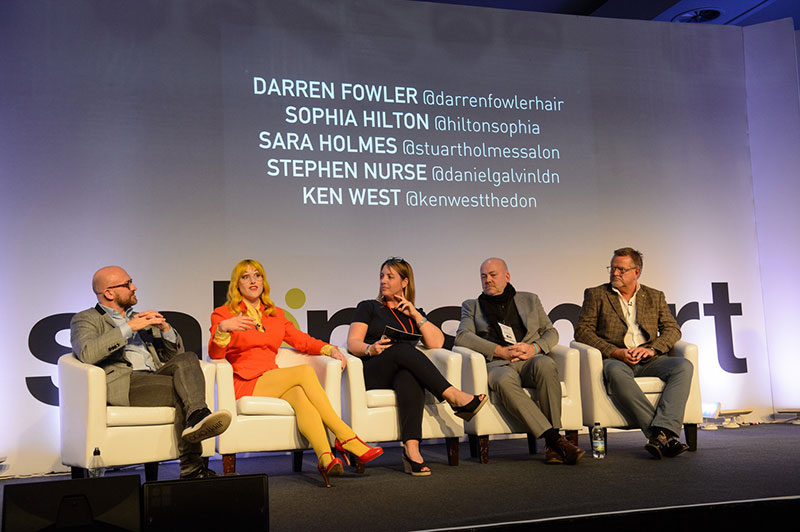
The first panel debate of Salon Smart 2019 focused on the event’s overarching theme – time. Darren Fowler of Fowler35; Sophia Hilton from Not Another Salon; Sara Holmes, business director of Stuart Holmes Salon; Stephen Nurse, operations director at Daniel Galvin and Ken West, director of 3.6.5 Education took to the stage to discuss saving it, maximising how it’s spent, and just how much you should charge salon clients for the use of yours.
When asked how he manages his time, Daniel Galvin operations director, Stephen Nurse, explained: “I’ll decide which three things I want to achieve that day and won’t go home until I’ve done them. These will be three things that most impact the bottom line.” He did suggest to salon owners also working full columns to focus on one.
He also advised delegation, but to try and avoid frustration if your choice of colleague doesn’t do things the same way as you. “Is there someone you trust to do that task? Then let them do it their own way,” he said.
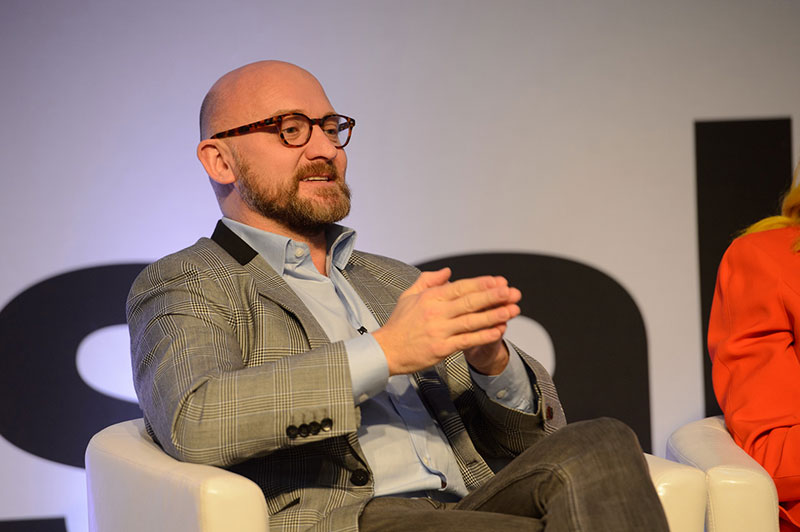
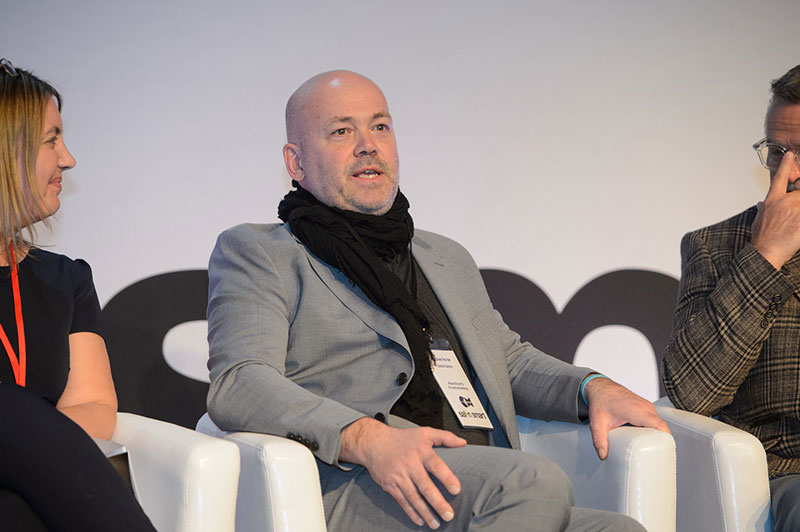
Fowler35 founder Darren Fowler’s first career was as a foreign money broker, so he was used to having a blueprint to a business… a learning he brought to his salon with his brand manifesto, a manual of sorts that sets out everything about his business and on which everything he and team do going forward is based. “Sometimes it takes someone outside your business to highlight why you’re so special,” he explains, “but when you know what that is, you run with it!”
“I think a lot of salons don’t understand the concept of building a brand,” Ken added. “Yes people go to stylists, but people mainly go to The Brand, which has been built up over the years.”
Darren also encouraged people to turn off their digital notifications: “You check in when you have time to get engaged and involved,” he advised. “It can take 15 minutes to get back to the same point of concentration otherwise, even if you haven’t dealt with that notification there and then.”
“I would argue (that social media) is not a black hole though,” countered Sophia, “my mortgage shows that! It will look like a black hole if you don’t see the value in it. It’s my shop window; people are going to look at it before they come in. They’re not going to look at five year old collections on the website which, for all they know, could be stock images – not when they can be looking at cuts and colours from yesterday.”
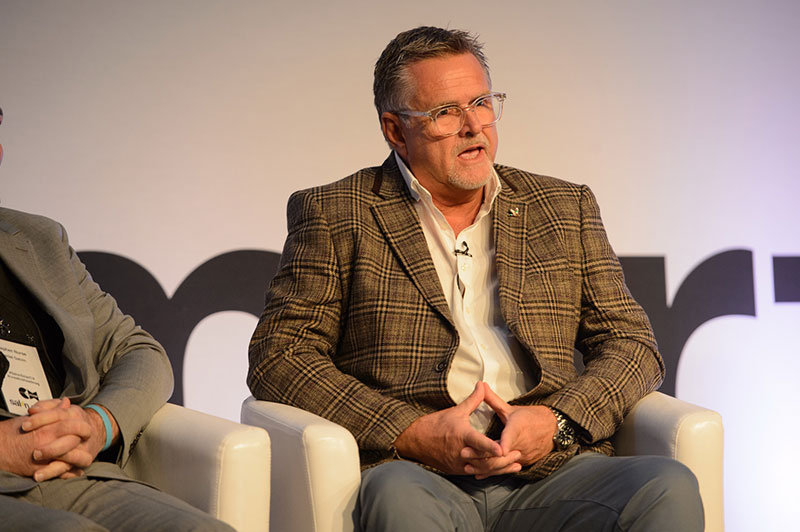
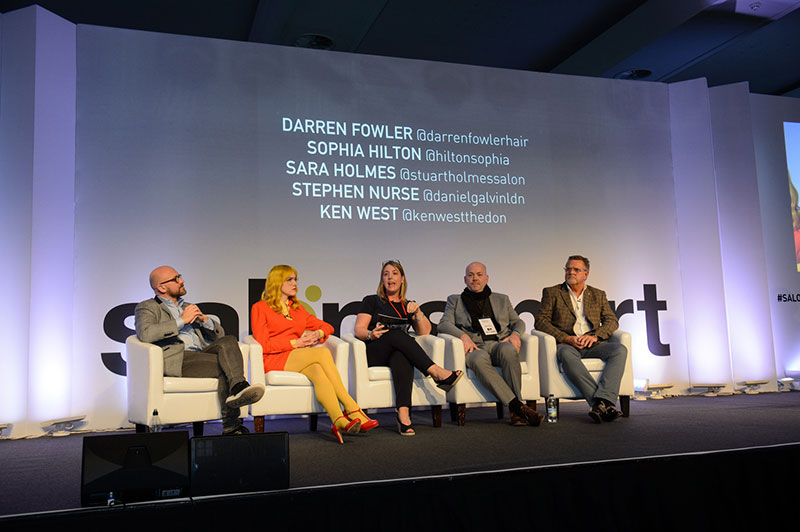
“When everything’s getting a bit much and piling on, I find the best thing to do is spend one-on-one time with my team,” she added. “Generally it’s not the salon, it’s something else. When I spend time working on them as people, then things tend to settle back into place.”
“Most salon owners tend to spend too much of their time on hair, rather than business or educating themselves and their team, or getting out and seeing how their brand is doing,” agreed Ken West. “Obviously we love hairdressing, but there is a point where you need to step back.”
“We are coming into a time of transition for pricing,” continued Sara Holmes of Stuart Holmes Salon, “I don’t believe hairdressers charge enough for the work they do – we need to ensure we are charging enough given the demands we are taking on – these can be luxury services, so the right price point is crucial.”
“I love the concept (of charging for time not individual services) when I look at other services and industries,” Ken admitted. “Yet we’re stuck in this paradigm of price and service lists. It makes much more sense to ask a client: ‘What do you want to look like? I’ll tell you what it will cost.’ But you can’t make this switch immediately.”
MORE SALON SMART 2019 SESSION REPORTS >
Check out more images from Salon Smart 2019 in our Facebook galleries
